Seeing Leonardo da Vinci riding a dilophosaurus while dancing ballet, who’s squaring off against a three-way alliance between the Renaissance movement, ice cream, and a Corgi is certainly a sight to see. But those are exactly the kinds of battles you can come to expect in Cards, Universe, and Everything.

Cards, Universe, and Everything (which I’ll refer to as CUE here on out) is exactly what it sounds like – it’s a card game where literally anything fights everything, and players are tasked with assembling a cohesive deck that can stand against any challengers.
While that sounds simple, it’s anything but. The gameplay of CUE is quite simple, but there’s a ton of depth to this game, which is what makes it so engaging.
For those who want to take the plunge into the insane and wonderful world of CUE, I’ve compiled a beginner’s guide based on my experiences to help ease you into the game. Let’s get started!
Understand the Game’s Flow
CUE has a simple gameplay system in place, which you’ll need to understand before you can fully capitalize on it.
Gameplay Basics
CUE utilizes an open game state where either player can play up to 3 cards per turn. Each of these cards has both an energy stat in blue, and a power stat in pink. Energy refers to how much it costs to play a card, while power is the amount of power it gives to your board.
At the end of a round, each player’s cards on the board are totaled, and this sum is used to push the value in the middle of the board towards their opponent’s side. Do note that your choice of cards isn’t finalized until you hit the End Turn button – you can take back cards if you decide you’d rather save them for later.
Don’t worry about running out of cards, either – after a card has been played, it’s returned to your deck. This is very important as cards are returned to the bottom of the deck in the same order you’ve played them, with the leftmost card being returned first and the rightmost going last. This means that once you’ve set up a combo, you can repeat that combo when you draw the necessary cards again!
The Center Number and Winning A Round
The center number is the key to determining who wins a round. The best way to visualize this middle number is to view one player’s numbers as positive, and the other player’s as negative. For example, if my opponent ends with 80 power on the board, the middle number will push towards my side for 80. However, since I had 50 power on the board at the same turn, it pushes back against that 80. However, this means that the board is still 30 points in my opponent’s favor.
Looking at it another way, you can visualize one player’s values as positive and the other as negative, and imagine the center of the board as a number scale. For example, if my opponent (who, for the sake of this model, I’ll treat as positive) ends at 100, but I (negative for this case) end at 120 (so it’s -120), the total of the two scores becomes -20: 20 points in my favor.
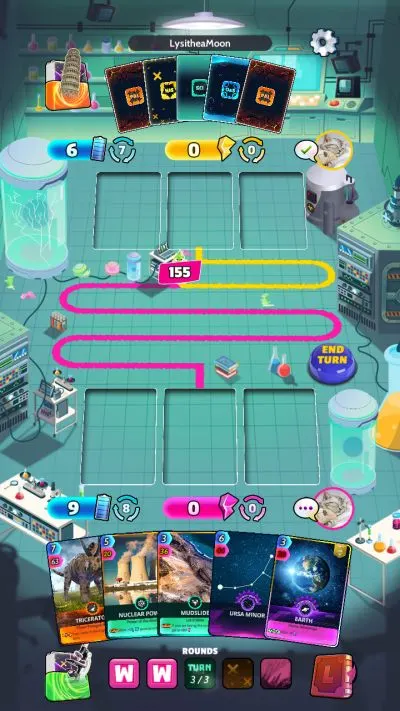
At the end of 3 turns of playing cards, the player who currently has the strongest middle value on the field wins – even if you’re just 1 point ahead. But don’t get too giddy after you’ve won round…
Winning A Game
…because you haven’t won the match yet. Each game of CUE is a best-of-3 of a best-of-3. In simpler terms, you and your opponent play up to 5 sets of 3-round matches, and the first player to win 3 sets wins the game.
Once a winner is declared, the next set starts and the arena will shift (more on that later). It’s important to note that you keep any cards you had in your hand when the previous set ended, so you’ll need to be strategic in playing cards.
And because players need to win 3 of 5 sets, you can use a few rounds to either gain insight on how your opponent’s deck works, as well as set up powerful combos for later, even if it means you have to take a loss in the current set.
Deckbuilding is Key
Yes, here we go again, so much so that I’ll go ahead and quote myself: “deckbuilding is closer to an art than a science”. Luckily, deckbuilding in CUE is a lot simpler and easier than say, Yu-Gi-Oh: Master Duel, but that doesn’t mean you can just go willy-nilly. To win your games, you’ll need a clear understanding of what you want to achieve, and what your plan is to end games.
Deck Size and Limits
Decks in CUE are easy to assemble because they contain 18 cards – no more, no less. You can also only add one of each card you have (no dupes!), but apart from that, there are really no rules. Further streamlining things is that because there are so many cards to pick from that have limited effects, there’s no “true” meta in CUE. In fact, you may see yourself switching decks often, as league matches change rules every week!
Consider Cards Carefully
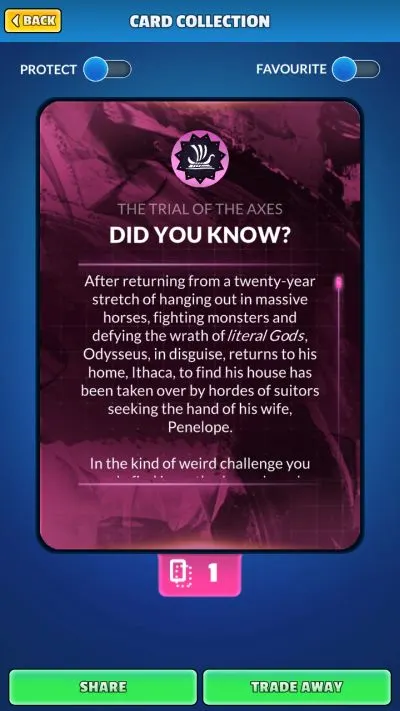
But just because there’s no meta doesn’t mean you should just stuff every single card you get from packs into your deck. A deck full of 5 energy, 50 power cards is good, but against, say, a deck with low-cost supports that increase the power of cards and some super heavy hitters further augmented by buffs is even better.
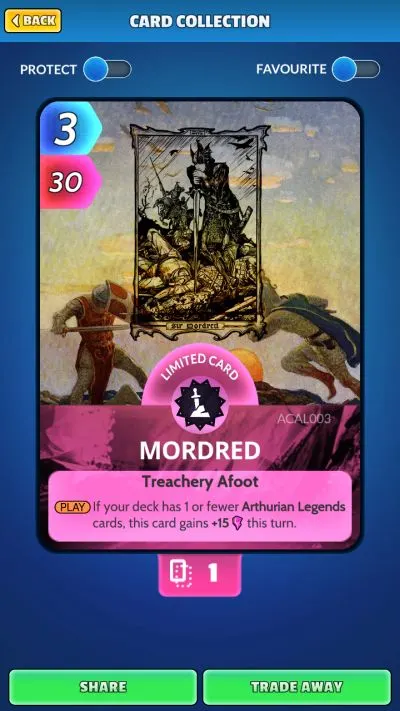
A general rule for deciding which cards to add is to factor in their PPE, or power per energy. To get this, divide a card’s power by its cost to see how much power you get for each energy point you pay. Don’t be swayed by humongous numbers, either – a 7 energy card with 63 power is less PPE efficient than a 2 energy card with 20 power!
Maximize Card Effects
Beating each other up is all well and good, but cards effects are where the game is really at. A good deck has cards that allow its player to seize the initiative and maximize opportunities as they appear.
Cards in CUE have different effect timing triggers, which are generally either classified as draw, play, return. These triggers influence when a card’s effect activates:
- Draw effects activate when the card is drawn from your deck.
- Play effects activate when the card is put into play from your hand.
- Return effects activate when the card is returned to your deck (after it’s been played)
Timing Is Everything
Since CUE’s games use a best-of-three system to score the winner, you can opt to deliberately lose a round to set up a big comeback later, especially using cards that have an extra permanent effect if you lose a round. Alternately, you can go for a big push by playing cards whose effects activate when they hit the field, or even go full-offensive by playing cards whose effects activate when you’re already winning.
Before you randomly throw cards into your deck, try and have a general idea of what you want your deck to be able to do. If you can’t do that, you can play a few rounds so you can experience firsthand what your deck’s deficiencies are.
Winning and Losing
You would think that having to define “winning” and “losing” wouldn’t be necessary, but I’ll do it here to clear up any confusion. To check if you’re winning or losing, look at the color of the scoreboard the critter in the middle of the board is holding up. If it’s yellow, your opponent is winning, while if it’s pink, you are winning.
This is important because there are a lot of cards whose effects activate whether you are winning or losing. These cards activate their effects when they are played, based on the current board state. This means that if you play a card with an effect that activates when you are losing while you have a bigger score than your opponent, that effect won’t trigger!
Card Types and Arenas
Cards in CUE fall into one of seven categories: arts & culture, oceans, space, life on land, history, paleontology, and science. Each of these categories is further subdivided into more specific subject matter, such as climate change, awesome aviation, energy, excellent elements, hidden Gems, and so on – and all of these are subtypes of the science category. On a side note, you can actually view the categories of the cards your opponent has on the field and in their hand as each category has its own abbreviation and color, visible on the card’s backs.
Knowing this is important because, on a basic level, cards that match the current round’s arena get a bonus, to the tune of 10 free power. On a deeper level, cards can affect entire subcategories of cards, and knowing what cards you can use to boost members of an archetype is key to making the most out of your cards.
For example, Pythagoras’ Theorem (a2 + b2 = c2 , and yes, this is more useful than you may think it is) is a 5 energy, 0 power card – expensive and useless on its own. However, its ability causes all common Mega Math cards in your to gain 34 power until the end of the round, making it perfect for leading a rushdown with souped-up, low-cost cards.
Trade Cards
A trading card game where you can trade cards?! What is this madness?!
Well, yes, it wouldn’t be much of a trading card game otherwise. CUE features a trading post where you can trade away cards you don’t want in hopes of getting a card you actually do need. However, before you begin, you’ll first need to know the name of the card you want, as you’ll have to put up a post for it. If you’re just browsing, you can also use the card search filter to narrow down cards you like.
Rarity is also an important part of trades. In ascending order, cards can be common, rare, epic, legendary, fusion, ultra fusion, or mythic. As a general rule of thumb, lower rarities tend to go for 1:1 – you’ll need to match the rarity of the card on offer with an equally rare card. For bigger fish, however, there’s no hard and fast rule as the value of a card is often dictated by several factors, such as its general use, its current playability in the league, and how splashable it is. If you need help appraising a card, veterans on the CUE discord and forums can help you.
Another factor in a card’s value is whether it’s limited or not. I initially thought “limited” just meant you could only put 1 of that card in your deck, but no. Limited cards are even rarer than non-limited cards, and are usually much more powerful. They’re very hard to pull from random packs, and it’s highly recommended to avail of any current promos that give you a guaranteed limited card. That said, don’t expect set guaranteed limiteds (like the ones you get in your level up packs) to be highly valued as everyone and their ancestors and their descendants has a copy of it.
Trading Charges
Of course, if everyone could trade all their cards at once, that’d be too easy. Your trades are gated by the number of trades you have left, which is viewable at the top of the screen. Each time you put up a card for trade or offer a card, you use up one trade, and you can only carry a maximum of 5 trades at once.
Craft Cards
Since you can only ever have one copy of a card, what’re you going to do with the duplicates? Why, craft with them, of course!
Regular Crafting
Crafting involves sacrificing 9 cards to create 1 new random card. No, that’s not a typo – the rate is 9:1. But if you’re not going to use those dupes to trade, you may as well put them to some use; maybe you’ll even get a card you actually want!
To craft, head on over to the cards and decks menu on the main menu, then go to crafting. Immediately, you’ll see 6 buttons, with only 1 colored in. These are crafting chambers, and you can craft one card in each chamber. Do note that crafting does take a long time, so if you foresee a lot of crafting in your CUE future, it may be worth unlocking more chambers!
Fusion
If you’d prefer a more deterministic method of crafting, you can try your hand at fusion. Fusion is very expensive in that it requires you to have lots of copies of certain cards – but because the result is guaranteed, fusion is still a lucrative process.
Play in Different Modes
There are two different game modes in CUE, casual and league. By knowing what you’re in for in either mode, you’ll enter the battlefield prepared and have a better chance at winning!
Casual Mode
Casual Mode will probably be your mainstay for a while, at least until you’ve got a better idea of what deck you want to make, or if you just want to compete in a more relaxed, friendly environment. Casual Mode comes with its own set of rules – 7 starting energy, 7 base energy regeneration, and uncapped energy and power income.
Despite what you might think, Casual Mode still gives you experience and rewards, despite its lack of a leaderboard! With that in mind, feel free to just jump in and fight other CUE players in this mode – you lose nothing, and you’ll gain progress towards your next level too!
League Mode
League Mode is a more challenging test of your deck building abilities, as well as your ability to read the field and counterplay your opponent. For starters, league mode’s rules change every week, so you’ll always be on your toes. Another defining characteristic of league mode is that it can apply modifiers to certain card sets, incentivizing players to use those cards.
So why would you play league over casual? Have a look at this image.
Yup, that’s a leaderboard. Depending on your placement on the league leaderboard during the weekly reset, you’ll receive rewards – Gems, coins, and card packs for the highest tiers. Interested now, eh?
Grab Free Stuff
With so many cards to collect, trade, and play with, you’ll want to nab as many free resources as you can. Here’s some of the ways to get free stuff in CUE.
Referral Codes
As a new player, you’ll probably be thinking of what deck to make with the cards you have.
Allow me to make the decision a bit harder by informing you that within 72 hours of starting the game, you can input another player’s referral code to get some rewards. It’s not hard to find a code if you don’t have friends who play, either: you can just ask Google as people tend to post their codes since it benefits both the inputter and the one who gave the code.
Promo Codes
On the heels of that, you can also enter promo codes that give you even more resources. To do so, go to the settings menu by tapping the three dots in the upper right of the main menu, then enter your code in the CUE Codes text box.
Here’s a list of the working codes I’ve verified to be working as of May 10, 2022.
- VERYOBVIOUS (10,000 coins)
- REMEMBERTHEALAMOSAURUS (10,000 coins)
- SORRYABOUTTHEGULL (10,000 coins)
- ITOOKTHEHINT (20,000 coins)
- UUDDLRLRBAS (1x George III card, 30 gems, and bonus points if you understand why it’s 30)
Daily Quests
Just like almost every multiplayer game out there, CUE has daily quests which are usually very simple – play X games, read X trivia, and so on. While they’re simple, you shouldn’t ignore these quests as they provide quick and reliable bursts of resources and experience.
Level-Up Rewards
Levels aren’t just for show. Each time you gain a new level, you’ll gain level rewards, which can give you resources, and even better, staple and highly splashable cards that you can throw into your decks.
Every so often, you’ll reach a new rank (which comes with a new title), and when you do, you can opt to pay real money to get a large amount of extra resources. These bonus bundles aren’t necessary to progress, but do note that they only become available once per player – if you don’t buy the new rank bundle within the time limit, it’s gone forever.
Watch Ads for Gems
Just like any mobile game, CUE has ads – which I highly advise you watch. At the end of a match, whether you won or lost, you’ll gain experience, coins, and a small amount of Gems IF you watch the ad. With how many good packs there are on sale, and a constant rotation of the shop’s inventory, saving up your Gems for a guaranteed limited card is a very good idea.
Revel in the Infinite Possibilities
CUE advertises itself as “superbly simple, infinite depth”, a claim that proves itself over and over as you’ll run into almost every single card, and every single one of them is viable. CUE does require patience, but for those who are willing to spend time and effort into intimately learning all its systems, there’s a whole universe of cards awaiting them, where everything is possible.
With that, my CUE beginner’s guide comes to an end, and I hope that you picked something up to help you navigate the frankly overwhelming experience when first jumping into the game. I wish you look in your CUE journey, and I hope to cross cards with you one day!

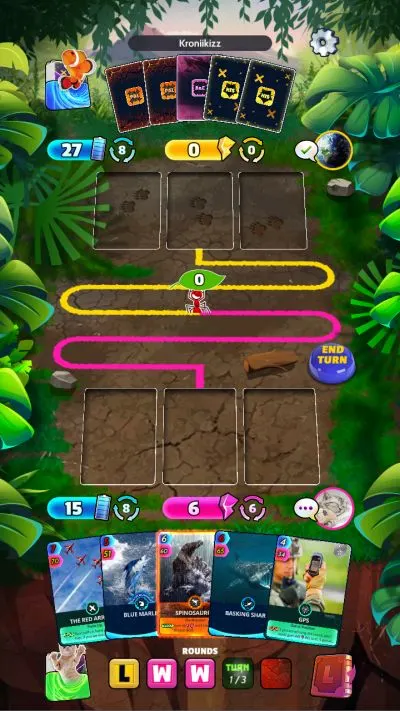
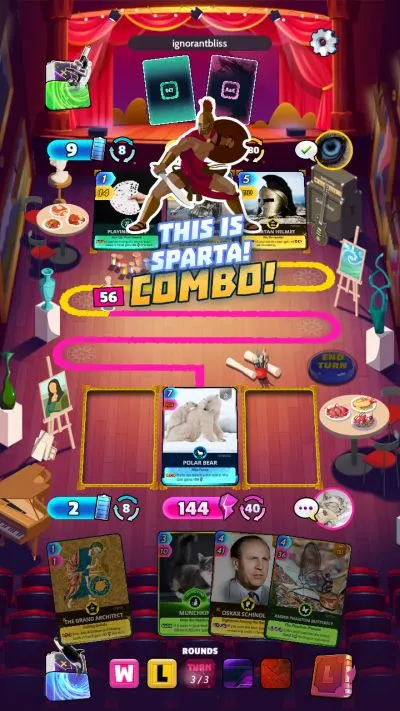
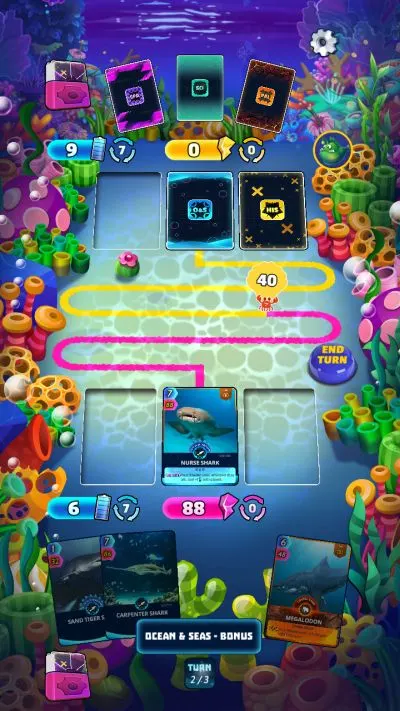

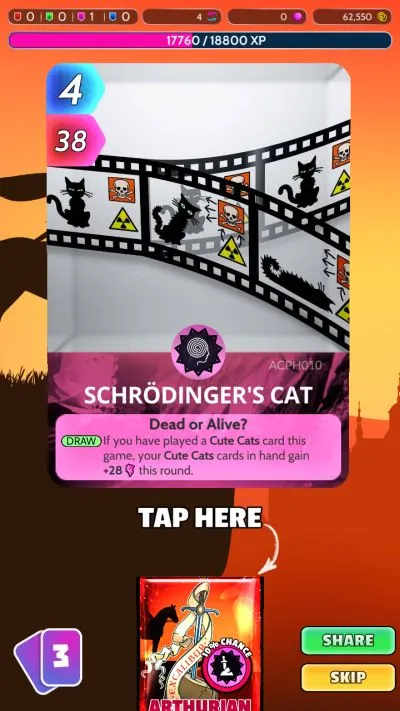
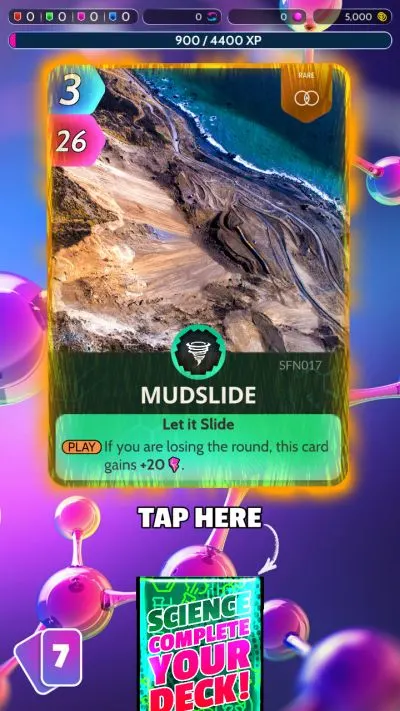
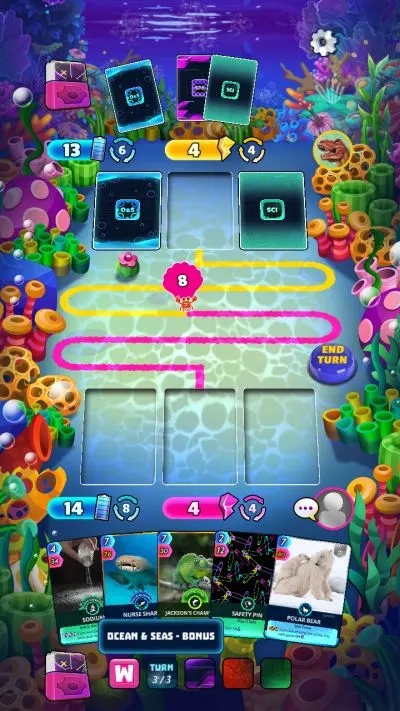
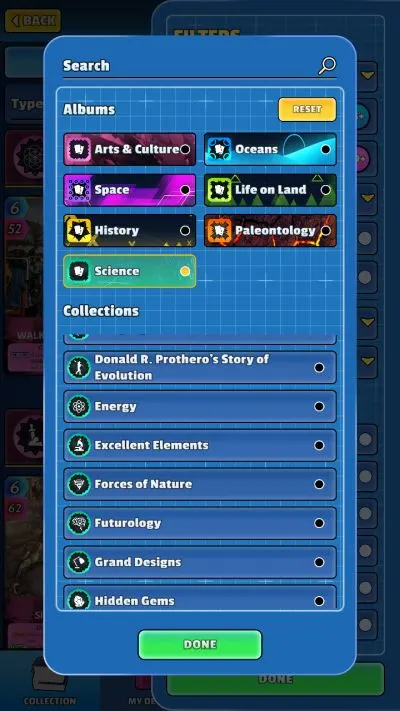
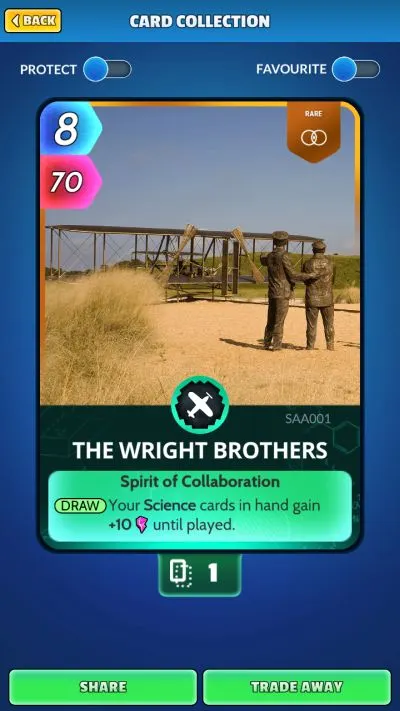
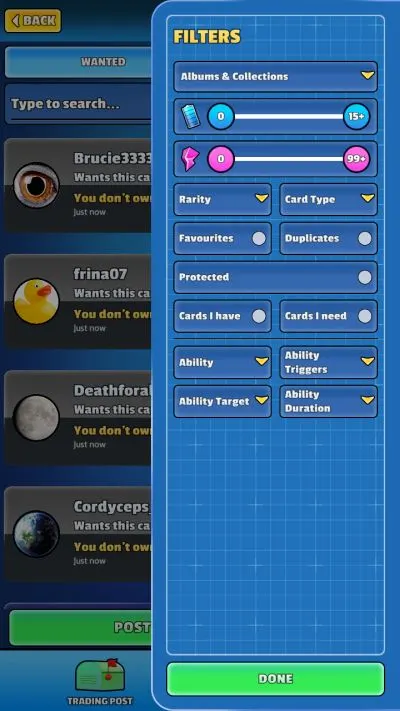


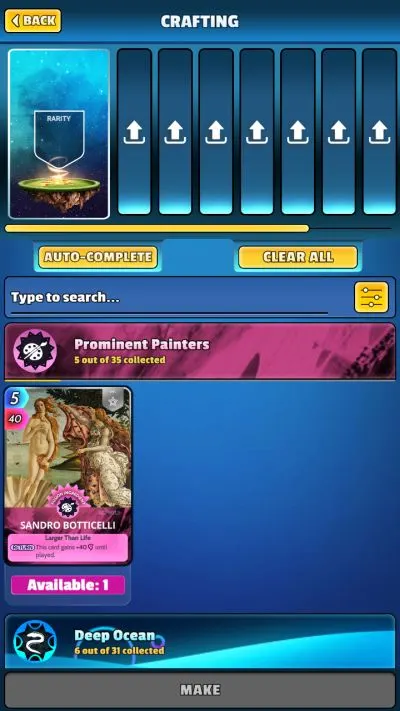
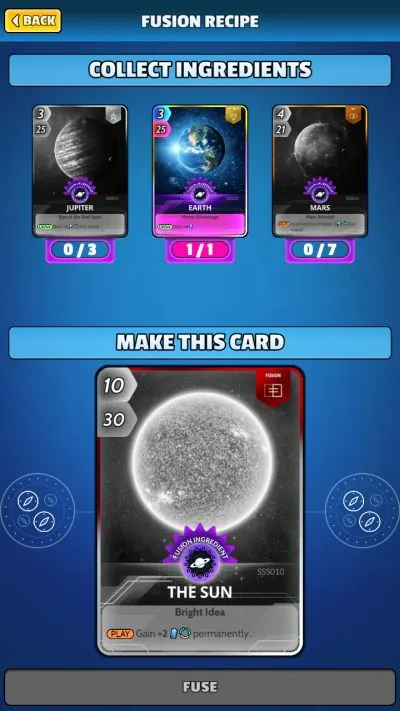
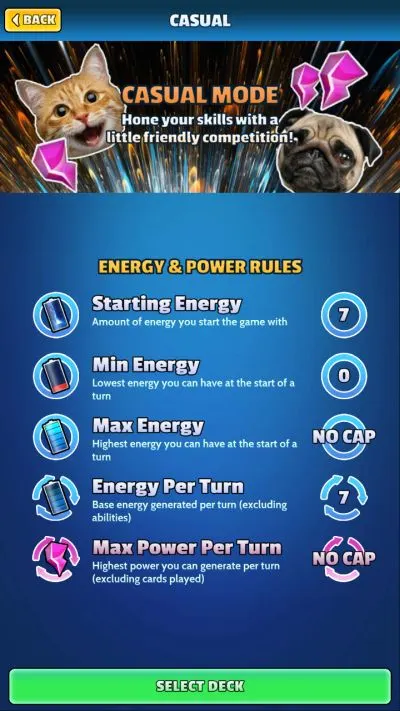
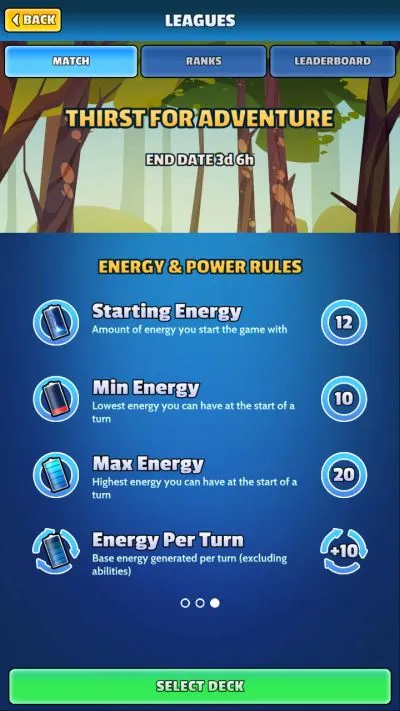
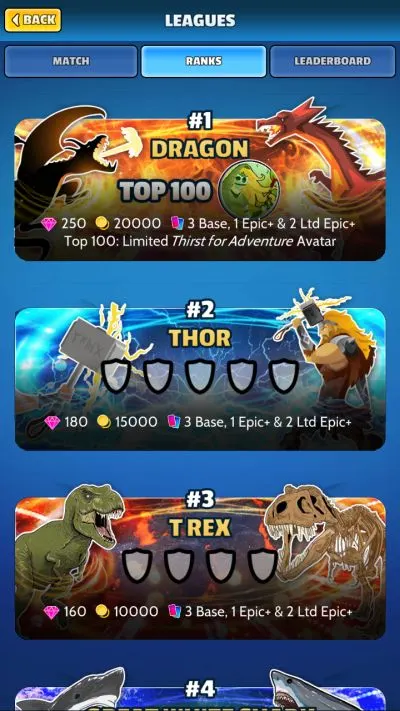



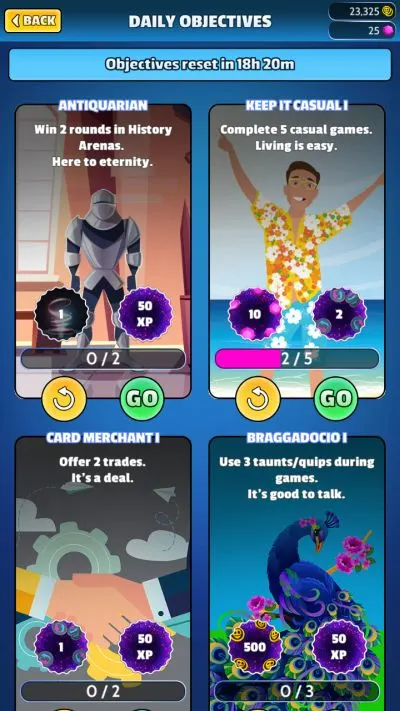

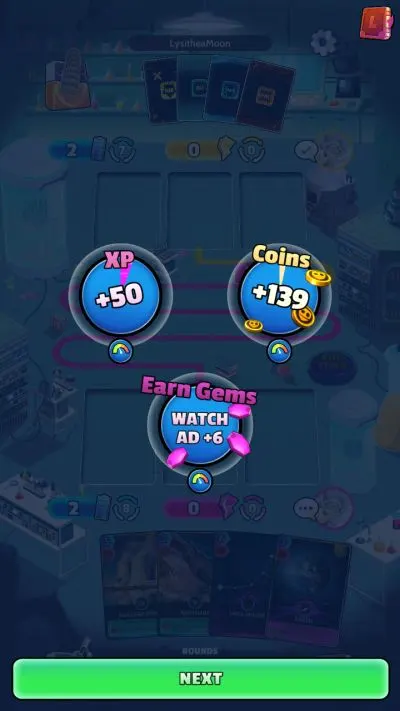
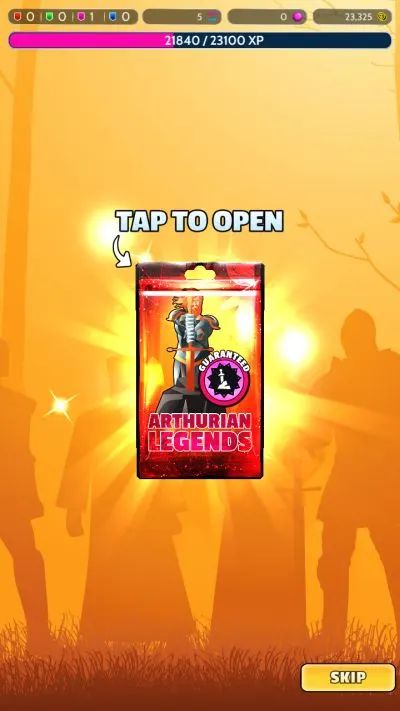
Jeff
Tuesday 16th of May 2023
A referral code for anyone that wants some extra perks: PWD-97B-XPM
Eagle Stochmann
Friday 21st of April 2023
CDY-L3Q-BGF Is mine thank you
Alex
Friday 24th of February 2023
4RF-YE7-WR4
In case anyone needs a referral code. Enjoy the goodies and than you very much!
Zacie
Monday 5th of September 2022
MD2-6R3-91E. Use my referral code! Enjoy your gift and thank you very much!!
S.e.
Monday 11th of July 2022
thank you for this, it was super helpful!